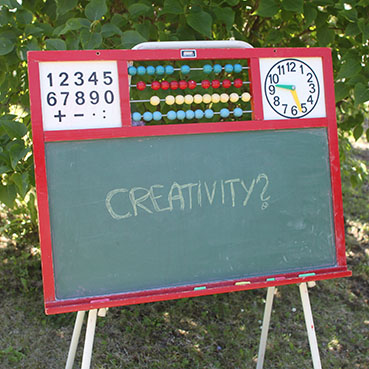Imagining the unknown - Responsible creativity for a better tomorrow
DOI:
https://doi.org/10.7577/formakademisk.1404Keywords:
responsible creativity, design education, creative, assessment repertoire, general education.Abstract
This paper explores the scientific discourse on creativity in the field of design education, drawing upon 165 papers presented at the DRS//CUMULUS Oslo 2013 conference. The review shows creativity to be a key concept in the scientific discourse and identifies five storylines that conceptualise creativity as a generic human capacity for which the field of design education eagerly claims responsibility. In the scientific discourse, the fostering of creativity is a leading motive when articulating reasons for design to gain terrain in general education. A multifaceted repertoire of strategies to solve design problems can drive new ideas or artefacts that contribute to both environmental protection and degradation, human aid or human-made disasters. I discuss how to frame the relevant educational content of creativity as part of a general education that empowers citizens to promote sustainability and meet global challenges ahead.

Downloads
Published
How to Cite
Issue
Section
License
Authors who publish with this journal agree to the following terms:
- Authors retain copyright and grant the journal right of first publication with the work simultaneously licensed under a Creative Commons Attribution 4.0 License that allows others to share the work with an acknowledgement of the work's authorship and initial publication in this journal.
- Authors are able to enter into separate, additional contractual arrangements for the non-exclusive distribution of the journal's published version of the work (e.g., post it to an institutional repository or publish it in a book), with an acknowledgement of its initial publication in this journal.
- Authors are permitted and encouraged to post their work online (e.g., in institutional repositories or on their website) prior to and during the submission process, as it can lead to productive exchanges, as well as earlier and greater citation of published work (See The Effect of Open Access).
- The author(s) must manage their economic reproduction rights to any third party.
- The journal makes no financial or other compensation for submissions, unless a separate agreement regarding this matter has been made with the author(s).
- The journal is obliged to archive the manuscript (including metadata) in its originally published digital form for at least a suitable amount of time in which the manuscript can be accessed via a long-term archive for digital material, such as in the Norwegian universities’ institutional archives within the framework of the NORA partnership.
The material will be published OpenAccess with a Creative Commons 4.0 License which allows anyone to read, share and adapt the content, even commercially under the licence terms:
This work needs to be appropriately attributed/credited, a link must be provided to the CC-BY 4.0 licence, and changes made need to be indicated in a reasonable manner, but not in any way that suggests that the licensor endorses you or your use.



